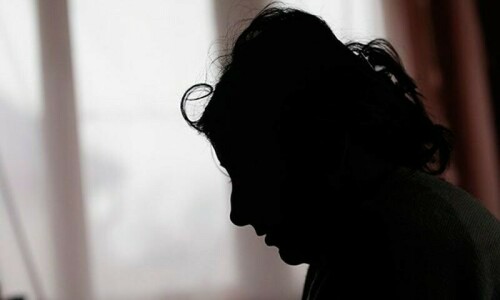KARACHI: The Marie Adelaide Leprosy Centre registers around 500 cases every year in the country and estimates that the situation will remain unchanged for the coming two decades, said MALC officials at a seminar on Saturday.
The awareness seminar and press briefing was organised to mark World Leprosy Day at the Pakistan-American Culture Centre. Dr Ruth Pfau, MALC’s founder; Dr Chris Schmotzer, Mervyn Lobu, Dr Mutahir Zia and Dr Ali Murtaza spoke on the leprosy situation in Pakistan.
They said the MALC had been working for the elimination of leprosy, TB and blindness from the country besides community developments for the last 56 years. Since its inception, almost 56,500 leprosy patients had been registered, of whom 98 per cent were treated free in the 157 leprosy centres across Pakistan.
They said 400 to 500 new cases were being registered at the MALC every year and it was estimated that this would continue for the coming two decades.
In 2014, a total of 501 new patients were registered in Pakistan, of whom 46pc were from Sindh, of whom 62pc were from Karachi.
Dr Ruth Pfau said World Leprosy Day symbolised the feelings of togetherness and love for patients affected by leprosy. She said it offered an opportunity to her and her associates working against leprosy to come closer and renew their commitment for a leprosy-free world.
She said In 1996, leprosy was controlled in Pakistan. The prevalence of the disease fell to the extent that the World Health Organisation declared that the disease had been controlled in Pakistan, one of the first countries in the EMRO Region to achieve that goal.
They further said that leprosy elimination was successfully being achieved, but elimination was not the end of leprosy. There were many challenges in terms of physical and social rehabilitation, which would go on even in the post-elimination phase.
She appealed to the people to do away with the stigma attached to the disease and the tendency to ostracise the sufferer.
Dr Zia said according to statistics available at the MALC, the disease prevalence rates were below the WHO recommended threshold, 0.27 per 10,000. He said Karachi had the highest prevalence rate among the large cities of the country — 0.09 per 10,000.
He said Punjab was contributing 20pc and Khyber Pakhtunkhwa 28pc to the patients.
Published in Dawn, January 31st, 2016















































Dear visitor, the comments section is undergoing an overhaul and will return soon.